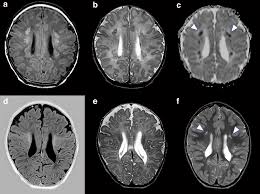 A Well-Founded Concept for Sustainable Change
A Well-Founded Concept for Sustainable Change
The I Love Me Principle and its associated transformation program is a carefully developed concept based on scientifically supported findings from psychology, medicine, and behavioral research. Its goal is to help people achieve long-term and sustainable change in their lives—through small, continuous steps that are individually tailored and proven in practice.
Here are some examples:
The Power of Small Steps: Scientifically Proven
A core principle of the transformation program is the focus on small, gradual changes. This approach is not only intuitive but also supported by a wide range of scientific studies.
- Study by Phillippa Lally et al. (2010): A study on habit formation published in the European Journal of Social Psychology found that it takes an average of 66 days to establish a new habit. The researchers emphasize that consistent daily repetition and small behavioral changes are key to success. In contrast, radical approaches often lead to overwhelm and dropout.
- The Kaizen Principle: Originally from Japanese management philosophy, the Kaizen model shows that continuous small improvements are more effective in the long term than sudden, sweeping changes. Psychological studies, such as those by Maurer (2013), confirm that this approach also has tremendous impact in personal development.
The transformation program of the I Love Me Principle addresses this very point: through daily exercises, small routines, and specific, achievable goals, it lays the foundation for lasting change. Participants find this approach not only convincing but also realistic and doable.
The Impact of Mental Techniques and Meditation in the Transformation Program
The I Love Me transformation program deliberately uses mental techniques and meditation exercises based on scientifically validated findings. These approaches are not vague or purely spiritual practices, but are grounded in a clear, well-researched understanding of brain function and emotional regulation. Here, we demonstrate how these methods can have a lasting impact on the brain and emotional well-being.
 The Science Behind Meditation and Mental Training
The Science Behind Meditation and Mental Training
- Changes in the Amygdala
- Studies show that regular meditation can reduce activity in the amygdala—the brain’s “emotional center.” The amygdala plays a key role in processing stress and fear.
- Study by Hölzel et al. (2011): A study on Mindfulness-Based Stress Reduction (MBSR) found that after eight weeks of meditation practice, there was a significant decrease in amygdala activity, resulting in a reduced stress response.
- Significance: In the transformation program, this promotes conscious awareness and reduces reactive emotions such as anxiety or overwhelm.
- Neuroplasticity and Gray Matter
- Meditation increases the density of gray matter in specific brain regions associated with self-regulation, compassion, and cognitive processing.
- Study by Lazar et al. (2005): Participants who practiced long-term meditation showed increased thickness in the prefrontal cortex, responsible for planning, focus, and emotional control.
- Significance: In the transformation program, this helps participants make clearer decisions and stay focused on long-term goals.
- Improved Emotional Regulation
- Mental techniques such as visualizations and guided meditations strengthen the ability to regulate difficult emotions.
- Study by Farb et al. (2007): Mindfulness practices activate the brain’s Default Mode Network (DMN) and support viewing emotions from a more objective perspective.
- Significance: Program participants learn to respond to challenges with less impulsivity and to maintain emotional balance.
- Reduction of Stress Hormones
- Meditation exercises lower cortisol levels, the body’s primary stress hormone.
- Study by Tang et al. (2007): After just five days of Integrative Body-Mind Training (IBMT), a significant reduction in cortisol levels was observed.
- Significance: The transformation program reduces not only emotional but also physical symptoms of stress.
- Improved Attention and Concentration
- Mental training sharpens the ability to focus on a task and minimize distractions.
- Study by Jha et al. (2007): Eight weeks of mindfulness training improved cognitive ability to maintain focus during stressful tasks.
- Significance: Program participants can use their energy more efficiently and stay motivated through change.
The Specific Impact Within the Transformation Program
In the I Love Me Transformation Program, these scientific findings are practically integrated. Targeted mental techniques and meditation exercises are used, offering the following benefits:
- Hypnosis Techniques: Studies show that hypnosis activates neural networks crucial for behavioral change and habit formation (Kirsch et al., 1995). This technique helps participants release deeply rooted blockages.
- Visualization: A study by Lang (1979) demonstrated that mental imagery supports goal achievement by enhancing motivation and positive thinking.
- Mindfulness Rituals: These daily practices create anchor points in everyday life, helping to maintain inner peace and clarity.
Long-Term Results
By combining meditation and mental techniques, participants in the Transformation Program experience not only short-term relief but also lasting changes in:
- Emotional Resilience: Improved ability to cope with setbacks.
- Cognitive Clarity: Increased awareness of thought patterns and decision-making processes.
- Physical Health: Reduced stress leads to better sleep patterns and lower inflammation levels.
The Importance of Reflection Exercises in the Transformation Program
In the I Love Me Transformation Program, reflection tasks and exercises play a central role. They are not just methodological tools, but scientifically backed approaches to support personal growth. These tasks help participants become aware of their thoughts, feelings, and behavior patterns, enabling them to make targeted changes. Here’s why reflection exercises are so effective and what scientific foundations support them.
Why Reflection?
Reflection is the process of thinking about one's own experiences, behaviors, and emotions. This conscious act creates clarity about internal states and brings unconscious patterns to light. Numerous studies show that this kind of "conscious awareness and thinking" has a powerful effect on the brain. It is therefore highly effective and has proven to be more sustainable than other methods. The application of reflection exercises in the Transformation Program is essential because they:
- Strengthen Self-Awareness
- Reflection exercises enhance the ability to analyze oneself honestly and to recognize blind spots.
- Study by Silvia & Duval (2001): This study shows that self-reflection improves self-awareness and helps people better understand their values and goals.
- Developing Emotional Intelligence
- Through reflection, participants learn to name, analyze, and respond to their emotions in a targeted way.
- Research by Goleman (1995): Emotional intelligence, strengthened through self-reflection, is a key factor for personal and professional success.
- Taking Personal Responsibility
- Reflection helps individuals take responsibility for their own behavior instead of blaming circumstances or other people for their challenges.
- Study by Marin & Rotondo (2015): Reflection exercises enhance personal responsibility and motivate self-directed action.
Scientific Foundations of Reflection Exercises
- Reflection and Personal Development
- Study from the University of Hamburg: This research shows that reflection exercises support the development of self-awareness and emotional maturity. Reflection enables individuals to recognize and cultivate their personal strengths.
- Result: Regular reflection leads to lasting personality changes and strengthens resilience.
- Improvement of Self-Regulation
- Self-regulation is the ability to consciously manage one’s thoughts and behaviors. Reflection exercises play a key role in developing this skill.
- Research by Baumeister et al. (1994): Self-reflection improves self-control by helping individuals identify internal conflicts and resolve them constructively.
- Increase in Well-Being
- Study by Lyubomirsky et al. (2005): Regular reflection on positive experiences and personal progress increases subjective well-being and reduces stress.
- In the Transformation Program, we use targeted reflection exercises to enhance awareness of success and progress.
- Long-Term Behavioral Change
- Reflection is a core component of the transtheoretical model of behavior change (Prochaska & DiClemente, 1983). This model shows that self-reflection is necessary at every stage of change—from preparation to maintenance.
- Significance: Reflection exercises help participants analyze their progress and stay on track.
How Reflection is Applied in the Transformation Program
In the I Love Me Transformation Program, reflection tasks are designed to be easily integrated into everyday life. Examples include:
- Daily journaling exercises: Participants reflect on their emotions, thoughts, and progress.
- Guided reflection questions: These help gain deeper insights into personal motivation and behavioral patterns.
- Visualization exercises: Reflection is combined with mental training to manifest goals and overcome obstacles.
Self-Love and Self-Worth: Psychological and Medical Foundations
Another core element of the I Love Me Principle is the strengthening of self-love and self-esteem. This area has been extensively researched.
- Self-Esteem Theory (Rosenberg, 1965): Psychologist Morris Rosenberg developed the concept of self-esteem, which he saw as a key component of mental health. Studies have shown that people with high self-esteem are less prone to depression and anxiety disorders (Orth & Robins, 2014).
- Self-Compassion (Neff, 2003): Kristin Neff coined the term self-compassion, describing a kind, non-judgmental attitude toward oneself. Her studies show that self-compassion reduces stress and increases resilience. In the Transformation Program, self-love is not understood as excessive self-glorification, but as a healthy relationship with oneself, which has been scientifically proven to contribute to emotional stability.
Transtheoretical Model of Behavior Change
The Transformation Program is also based on the Transtheoretical Model of Behavior Change by Prochaska & DiClemente (1983). This model describes behavior change as a step-by-step process with the following phases:
- Precontemplation
- Contemplation
- Preparation
- Action
- Maintenance
Studies show that individuals who mentally and emotionally prepare for each phase are more successful in the long term. This approach enables the program to foster sustainable change without overwhelming participants.
Setting and Achieving Goals
The importance of realistic and achievable goals is also supported by research:
- Study by John C. Norcross et al. (2002): A study on New Year's resolutions found that participants who set small, specific goals and pursued them step by step were significantly more successful than those with radical plans.
- Self-Regulation and Goal Setting: Locke & Latham (2002) emphasized in their work the importance of specific goals to make progress measurable and to maintain motivation. This approach is an integral part of the Transformation Program.
Maintaining Healthy Relationships
The I Love Me Principle also emphasizes the importance of healthy relationships:
- Attachment Theory (Bowlby, 1969): This theory shows that secure attachments are essential for emotional well-being.
- Studies by Gottman & Levenson (2002): Research on emotional intelligence in relationships highlights that conflict resolution and mutual support are key. The program aims to create a foundation for healthy relationships through self-love and self-awareness.
Mindfulness, Meditation, and Affirmations
The Transformation Program utilizes techniques such as mindfulness, meditation, and affirmations, all backed by scientific research:
- Mindfulness: Studies by Kabat-Zinn (2003) show that mindfulness reduces stress and improves emotional regulation.
- Affirmations: According to Critcher & Dunning (2015), positive affirmations enhance self-efficacy and motivation.
- Visualization: A study by Lang (1979) confirmed that mental training through visualization supports goal achievement.
Practically Tested Concept
The Transformation Program was developed based on the scientific foundations mentioned above and has been tested in practice. It has been refined through iterative adjustments and participant feedback to achieve optimal results.
- Hypnosis techniques: These complement the program by addressing unconscious behavioral patterns. Studies show that hypnosis can be effective in changing habits and resolving emotional blocks (Kirsch et al., 1995).
- Testing: Participant reports confirm that the combination of small steps, emotional healing, and scientifically backed techniques leads to sustainable change.
Conclusion: Science as the Foundation
The I Love Me Principle and the Transformation Program are built on a solid foundation of scientific studies and psychological findings. The combination of small steps, proven techniques, and practice-tested approaches makes this concept unique and effective. It offers a structured, realistic, and sustainable way to improve your life—without unrealistic promises or exaggerated esotericism. Instead, the science of change is at its core.
For rational thinkers and skeptical minds, the I Love Me Principle offers a trustworthy, evidence-based approach to unlocking one’s potential. This program is not only a journey toward greater self-love but also a systematic method to break old patterns and lead a more fulfilling life—step by step, supported by science and practice.

 EN
EN  DE
DE  ES
ES